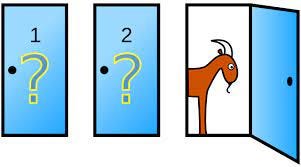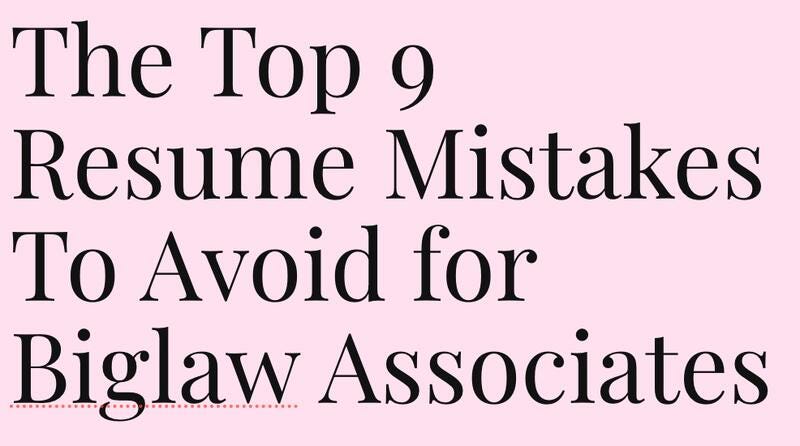The Monty Hall problem is a simple puzzle, a riff on the classic game show Let’s Make a Deal1. It’s tripped up a lot of people trying to solve it. Maybe you’ll figure it out the first go. But even if you do, there’s a fascinating and counterintuitive career insight in the puzzle.
The puzzle
You're on a game show. There are three doors. Behind one of the three doors is a prize - a million bucks. The other doors have a goat behind them. You're asked to pick a door that has the prize. You pick the door in the middle. The host then opens the right door to reveal a goat. So now you have a choice: stick with the middle door that you chose, or switch to the door on the left. What do you choose?
Many people think that now that the right door has been revealed to be a dud, you have a 50:50 shot of having picked the correct door, so you could stay or switch, doesn't matter. They're wrong. The correct answer is to switch.
Here's how to think about it: your initial task was to choose one door, and it equivalently was not choosing two doors. Revealing what's behind the right door isn't a neutral event. It creates information - you now know what's behind that door, and it's not the prize.
So if you had a 1/3 chance of picking the correct door and a 2/3 chance of picking the wrong door, the right door then transfers the 2/3 chance of picking the wrong door onto the left door.
So if the odds you picked correctly from the outset is 1/3 and the odds you picked wrong were 2/3, then you're twice as likely to win by switching.
The hidden career insight
With a little reflection, you can see how your career follows this same principle.
When you progress through your career, information is revealed. You learn what skills you value in yourself - what's more like a game, what's easy for you that's hard for others? You can consider industries - do you want to play the game of jumping on a trend, or the game of guessing which industries provide reliable growth?
There are entire practice areas servicing clientele that didn't exist ten years ago. If the game emulated life, new doors would have to be added throughout the game. What are the odds you are currently in the perfect role in the perfect industry?
You don't make moves starting from scratch. You build on the previous relationships, skills, and lessons. And very few business decisions aren't reversible. But you won't be able to find out until you take the leap.
You also don’t know how your skills will be unlocked in a new environment. One of my clients, a patent prosecutor, worked for two of the largest energy companies as an engineer before law school. Her firm might have valued that some. But when she interviewed at an AmLaw 20 law firm, the co-chair of the patent prosecution practice was ecstatic: “I worked as an engineer before law school, and I think it’s nuts that so many patent lawyers never practiced as engineers.” The value of that experience was unlocked at her new firm.
My journey
I entered law school when I was 28. I felt old. My previous experiences didn't seem to prepare me for the unique challenges of law school. So what was the point of working before law school? It turns out those experiences were essential to getting where I am today.
(1) Working on a national political campaign as a field organizer taught me how to approach anyone. I felt confident as a 21-year old walking up to the wealthiest house to ask for a donation or a volunteer.
(2) Before law school, I had never worked a white-collar job. I had no idea how to draft an introductory email to another professional. So I volunteered for my college alumni association and learned the fundamentals of communication, organization, and persuasion.
Because I had the skills I learned from outreach on the (1) campaign and the (2) alumni association, that gave me the confidence to bet on myself to attend a non-target law school on scholarship and network my way into biglaw.
The path from biglaw patent litigator to legal recruiter was the next unlock. But that’s a story for another time.
Another way to visualize career paths
So many lawyers feel anxiety about their path because it seems like there are few paths to success, and each of them is a tightrope. Try to get on but don't fall off. The truth is none of that matters.
It turns out you don't have to focus on paths closed to you, because there are far more paths ahead of you. That can be hard to see because (1) the future paths are not identical to the paths closed off today and (2) you can create future paths.
Thanks for reading this. When the pandemic hit, I started sharing how I broke into biglaw from a non-target law school on LinkedIn. That resonated, so I continued to share parts of my story and what I’ve observed in practice.
Now, I’ve grown 12,000+ followers on LinkedIn. But with the limited space and attention span there, I found that I wasn’t able to dig deeper into key ideas, to pull ideas from disparate practices, and to say what I can’t always say in the vanilla space that’s LinkedIn. That’s what this newsletter is for.
p.s. I’m a legal recruiter and founder of Freshwater Counsel, the only agency focusing on elite patent and litigation talent led by a former AmLaw 20 patent litigator.
p.p.s. I wrote a 2-page guide on the top 9 mistakes every biglaw associate should avoid in their resume. You can get the free guide here.
The history of the Monty Hall problem is really interesting. The question was posed to Marilyn vos Savant, a columnist with a national following. She gave the correct answer and reason, only to receive a torrent of hate mail.
As one psychologist observed, "No other statistical puzzle comes so close to fooling all the people all the time [and] even Nobel physicists systematically give the wrong answer, and that they insist on it, and they are ready to berate in print those who propose the right answer".






